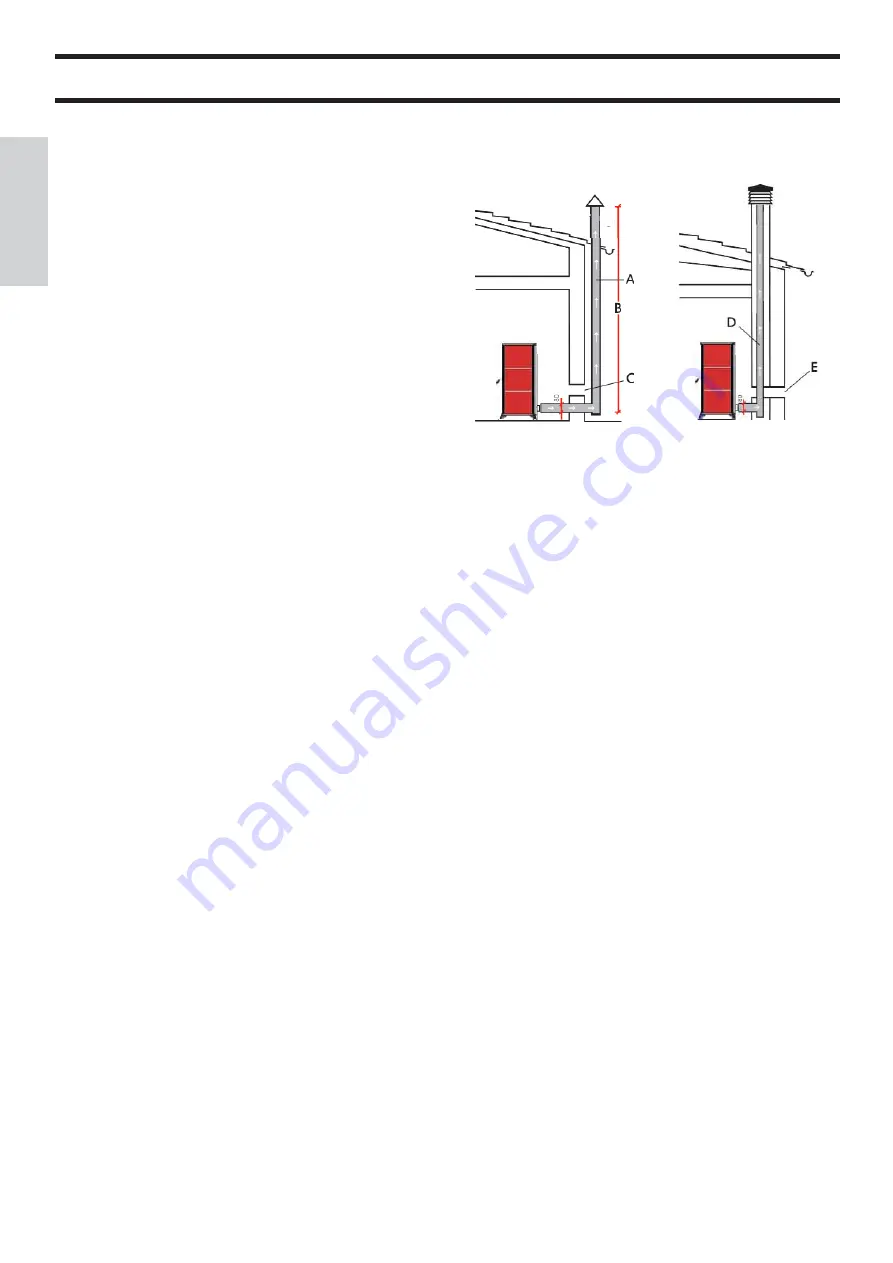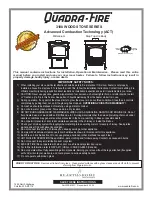
- 38
-
ENGLISH
A:
fl ue in insulated steel compliant with EN 1856
B:
minimum height of 1.5 m and in any case above the height of the
roof gutter
C-E:
air intake from inside room (minimum internal section: 80 cm²)
D:
steel fl ue, inside existing brick-built chimney.
INSTALLATION
CHIMNEY POT
The main characteristics are:
- an internal cross-section at the base, which is the same as that
of the chimney fl ue
- an outlet cross-section which is no smaller than twice that of
the chimney fl ue
- its position must be high enough to catch the wind and avoid
downdraft areas in turbulent wind, it must be high enough to
catch the wind and avoid downdraft areas in turbulent wind.
TYPICAL EXAMPLES
Fig.
1
Fig.
2
SMOKE OUTLET
The stove must have its own smoke outlet (the smoke can-
not be discharged into a smoke fl ue used by other devices).
The smoke is discharged through the 8 cm diameter outlet at
the back of the stove.
The smoke outlet must be connected to outside by means of
suitable steel pipes EN 1856 certifi ed.
The pipe must be hermetically sealed.
The material used to seal and if necessary insulate the pipes,
must be resistant to high temperatures (high temperature silico-
ne or mastic).
The only horizontal section allowed may be up to 2 m long up
to three 90° bends (in relation to the vertical).
A vertical section of at least 1.5 m and an anti-wind terminal
is necessary (if the discharge outlet is not in a chimney fl ue
-
reference UNI 10683).
The vertical duct can be internal or external.
If the smoke channel is outside, it must be appropriately insu-
lated.
If the smoke channel is fi tted inside a chimney fl ue, the latter
must be suitable for solid fuel.
If it is wider than 150 mm in diameter it must be improved by
entering a pipe that has a suitable cross-section and is made of
suitable material (e.g. 80 mm diameter steel).
All sections of the smoke duct must be accessible for inspec-
tion.
The chimney pots and smoke ducts connected to the solid fuel
appliances must be cleaned once a year (verify whether a speci-
fi c legislation exists in your country).
Failure to regularly inspect and clean the stove increases the
probability of a fi re occurring in the chimney pot. In that case,
proceed as follows:
Do not use water to extinguish the fi re; Empty the pellet hop-
per; Contact specialist personnel before reigniting the stove.
The stove is designed to work under any weather conditions.
In case of particular conditions, such as strong wind, the safety
system may be activated, which results in the stove being extin-
guished.
If this happens, do not operate the stove with the safety devices
disabled.
If the problem persists, contact our Technical Service De-
partment.
















































